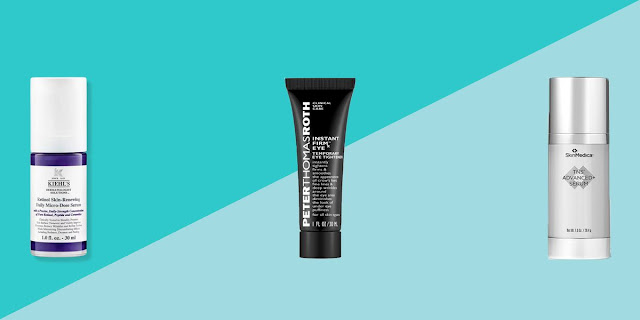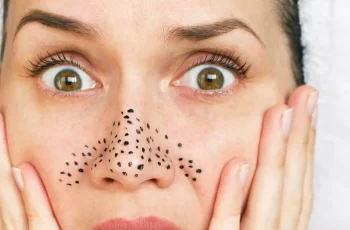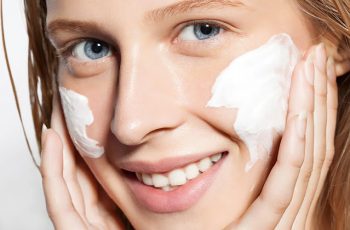
Can I use chemical peels on my lips?
In everyday life, our lips are subject to the same abuse as the skin on our face. They are exposed to UV rays, dry out due to cold weather, and due to improper or lack of care.
Lip scrubs are a very popular lip care product, but with chemical peels becoming increasingly popular and a part of almost everyone’s skincare routine, it was only a matter of time before we started hearing questions about whether or not you can use chemical peels on your lips. We did some research and thought we could give you some answers.
Can I use AHA BHA on my lips?
The skin on your lips only has three to five cells, which is very thin compared to the 20 layers of cells that you typically have on the rest of your face. This means that not all AHAs are suitable for exfoliating your lips because they are too strong. However, there are a few popular AHAs that work wonders. These are:
Lactic Acid
Lactic acid is the safest for lips because its molecular size is large, so it can’t penetrate too deeply into the skin and cause irritation or other damage. You’ll also find that lactic acid is hygroscopic, which means it attracts moisture from the environment, helping to keep the skin on your lips soft and hydrated. Lactic acid also helps with lip pigmentation issues, and you’ll notice a reduction in pigmentation in that area.
Mandelic acid
While mandelic acid isn’t as gentle as lactic acid, it works best when it comes to pigmentation. The downside to this acid is that you may experience some minor flaking of your lips, although luckily this is very manageable.
Glycolic acid
This acid is very potent and works best. However, you should be especially careful when using glycolic acid because it has the smallest molecules and is therefore the easiest to absorb into the skin. If you want to use glycolic acid for your lips, it’s best to seek the advice of a trained professional to ensure that the acid isn’t too strong for your lips.
Salicylic acid
Salicylic acid is the most commonly used BHA, and unlike the other AHAs mentioned, this acid is oil-soluble and has a smaller molecule size. This means that it penetrates deeper into the skin, which can cause unwanted irritation, especially since the skin on our lips is much thinner than the rest of our face. Many experts recommend not using salicylic acid to exfoliate your lips, and instead use other acids.
What can I use to exfoliate my lips?
There are a variety of ways to exfoliate your lips. The most popular ones are the following:
Homemade lip scrub
Moisten the air with a humidifier
Wipe away any flakes with a damp towel
Exfoliate your lips with a clean, old toothbrush
Use a store-bought lip scrub
Use a chemical exfoliant specifically designed to exfoliate lips
Any of these options will help you achieve smoother, more nourished lips. However, in recent years, some popular lip exfoliants have proven to be too aggressive for sensitive lip skin, so they should be used with caution. Here are some tips to ensure your lips stay healthy after exfoliating.
Remember to be gentle
The skin on your lips is more delicate, which means it can be easily damaged. With any form of lip exfoliation, it’s always a good idea to be as gentle as possible. If you find that your lips are sensitive, try a homemade lip scrub recipe that contains sugar, honey, and coconut oil. These particles are much gentler on the skin and won’t cause skin irritation or damage.
Protect your lips
The skin on our lips can suffer the same damage as our face, with sun exposure being the leading cause of lip pigmentation. When you go out, protect your lips with a moisturizer that contains SPF.
Don’t exfoliate too much
Excessive exfoliation can have a domino effect on the health and overall appearance of your lips. Exfoliating once a week is enough to keep them feeling soft.
Don’t forget to moisturize
Similar to moisturizing your face after exfoliating, it’s important to do the same for your lips. After exfoliating, apply a nourishing lip balm to protect the skin. You can also try a nighttime lip mask or lip oil to wake up with soft lips in the morning.
Do lips exfoliate on their own?
Lips are made up of mucous membranes, which are a special type of skin that is significantly different from the skin on the rest of the body. It’s more delicate, thinner, and has less dead skin cell accumulation. This also means that lips don’t exfoliate on their own, but dryness, cracking, and other damage can occur. This can be treated with a little caution by using a generous amount of lip protection products and gently exfoliating once or a few times. Twice a week, avoid too much, otherwise it will cause damage.
How often should I exfoliate my lips?
This depends on the product you use and the pressure you apply. For example, if you want to gently exfoliate your lips with a natural homemade scrub, you can apply the product to your lips for about 5-10 minutes. If applying more pressure, about 1 minute is the right amount of time.
Try to avoid scrubbing too hard, as this can cause sore, cracked, and damaged lips. If you’re worried about being too rough, a lip scrub or similar product is a better choice. Remember to follow the instructions on the packaging and let the alpha hydroxy acid do its thing.
Can I exfoliate my lips?
In recent years, there has been a rise in lip scrubs and exfoliating oils. This is mainly because these products are gentle on the skin and are very effective in removing flaking, dry patches, and rough texture from the lips. However, every lip scrub product is different, and you should always make sure you’re using the product correctly. Another point to remember is not to use a lip scrub on cracked, chapped, or cut lips, as this can cause severe burning and irritation.
Can I use a lip scrub every day?
To get the best results from a lip scrub, use it once or twice a week, depending on how dry and flaky your lips are. Exfoliating your lips every day can cause serious damage to your skin. Over-exfoliating your lips can lead to cracks, micro-cuts, and even hyperpigmentation. If you want to speed up the results and keep your lips looking healthier, moisturize them 2-3 times a week with a lip balm or overnight lip mask.
I hope all of your questions about chemical peels have been answered in today’s blog post. However, if you have any other questions, follow us on Instagram.


